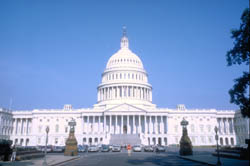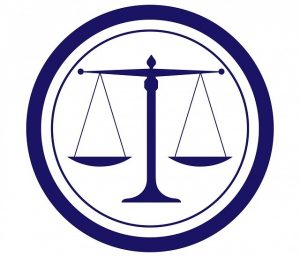If you’ve been seeing television ads sponsored by a group called CCIA lately, do not be deceived!
The “Squeezed” ad from the Computer and Communications Industry Association (CCIA), third in a series of Don’t Break What Works television ads, begins, “You feel it at the pump, at the check-out counter, and at the end of the month. Families are getting squeezed by higher prices, and now Congress is considering a bill that could make things worse for millions of Americans…”
This latest ad, which began to air May 16, asks viewers to tell their senators to oppose the bipartisan bill, S2992, and “highlights how the American Innovation and Choice Online Act will hurt Americans struggling amid record inflation, break services like Google Search and Amazon Prime, and jeopardize phone security.”
However, according to Tom Wheeler of the Brookings Institution in an article entitled “History repeats itself with Big Tech’s misleading advertising,” these ads are deceptive and do not cite facts. Wheeler’s colleague Bill Baer writes that the legislation is far more nuanced than what the commercials suggest. There are 10 different types of “problematic self-preferencing conduct” in the bill. The first three authorize federal and state authorities to sue under certain conditions, then the companies can defend themselves in court.
 Similarly, the Washington Post’s headline in June also challenges the tech companies’ protests: “A multimillion-dollar campaign is pushing Dems to ditch antitrust reform.” CCIA represents companies such as Amazon, Apple, Meta/Facebook, and Alphabet/Google and has spent at least $24 million in this effort.
Similarly, the Washington Post’s headline in June also challenges the tech companies’ protests: “A multimillion-dollar campaign is pushing Dems to ditch antitrust reform.” CCIA represents companies such as Amazon, Apple, Meta/Facebook, and Alphabet/Google and has spent at least $24 million in this effort.
There are other forces at work trying to convince senators, voters and others to sink S2992 as it works its way through the legislative process. As Wheeler points out, one is the Consumer Technology Association (CTA), whose ads argue that antitrust legislation is a national security threat – without specific reference to this bill or any other. Further, an obscure organization called the American Edge Project is running ads that “also fail to mention what legislation concerns them, how those concerns could be fixed, or how the horrors they warn of could actually happen.” The Americans quoted – from Arizona and Corinth, Mississippi, for example – are being misled, are uninformed or both.
The enormous American technology companies are not evil in and of themselves. They have been innovative, have created millions of jobs, have improved our lives in many ways, and have created products that one might argue we can no longer do without. However, the Federal Trade Commission (FTC), which was created in 1914 and opened its doors in March 1915, was formed to combat the downsides of huge corporations and to protect “consumers and competition by preventing anticompetitive, deceptive, and unfair business practices through law enforcement, advocacy, and education without unduly burdening legitimate business activity.”  The FTC has been around for a long time – and has prevailed over hundreds of companies that have attempted to skirt the law and take unfair advantage of their size, power and wealth.
The FTC has been around for a long time – and has prevailed over hundreds of companies that have attempted to skirt the law and take unfair advantage of their size, power and wealth.
While the ads we have been describing oppose S2992, many companies actually support the bill. According to a CNBC report on June 13-14, “Dozens of companies and business organizations sent a letter to U.S. Congress members … urging them to support a bill that would rein in the biggest tech companies such as Amazon and Alphabet’s Google.” Other companies and groups that support the bill include Yelp, Sonos, DuckDuckGo, Spotify, the American Booksellers Association, the American Independent Business Alliance, the Institute for Local Self-Reliance and Kelkoo Group. The letter states that S2992 is a “moderate and sensible bill aimed squarely at well-documented abuses by the very largest online platforms.”
Words to the Wise
Americans who watch television must be on the alert, especially in election seasons, for deliberately misleading advertisements. The political parties, lobbyists, political action committees and others who want to influence voters, elected officials, and even companies have enormous wealth at their disposal to hire the best advertisers, publicists and other professionals. The ads can be very slick, convincing, and confusing, and their wording can sound quite enticing. Of course we all want what those groups are pushing: safety, financial security, the best for our children, reasonable prices for goods we purchase, technological innovation, and fairness. But we need to be alert to these groups’ actual underlying goals: to keep power and wealth in the hands of those (mainly white men) who already enjoy the vast majority of that power and wealth in our country.S2
 The CCIA, CTA, the American Edge Project, and other organizations like them – with their misleading ads – are not on the side of a true democracy.
The CCIA, CTA, the American Edge Project, and other organizations like them – with their misleading ads – are not on the side of a true democracy.
Whether S2992 passes or not is a fair question. For now, we should keep our eyes on it and make sure we are constantly aware of the forces that try to influence us in ways that may not be in our own or our nation’s best interests.
